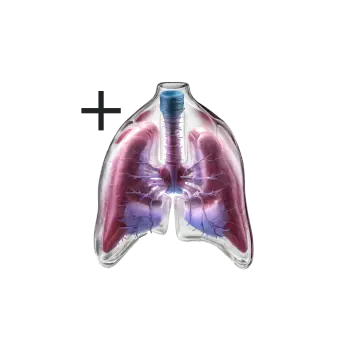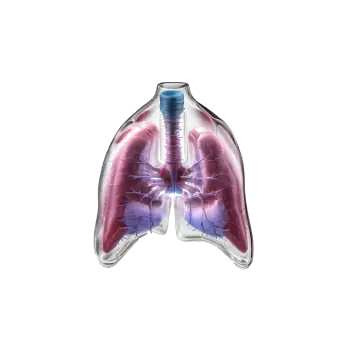What is Graves disease
Graves' disease is an autoimmune disease that affects the thyroid gland, a small gland found in the throat that regulates metabolism. In Graves' disease, the immune system produces antibodies called thyroid-stimulating immunoglobulins (TSI). These antibodies bind to the thyroid cells and stimulate them to produce and secrete too much of the thyroid hormones triiodothyronine (T3) and thyroxine (T4). Increased production of thyroid hormones leads to an overactive thyroid gland, which can affect the body's various functions and organs.
Causes of Graves' disease
When levels of testosterone fall below the normal range, it can result in testosterone deficiency which is a medical condition that can negatively affect a man's quality of life.
Aging: A natural decline in testosterone production occurs with age. This age-related decline can be a common cause of testosterone deficiency in older men.
Medical conditions: Certain medical conditions such as hypogonadism, testicular or pituitary problems can lead to to low testosterone levels.
Lifestyle and diet: Insufficient sleep or an unhealthy diet as well as excessive alcohol consumption and lack of exercise can negatively affect testosterone levels.
Obesity: Obesity can increase the conversion of testosterone to estrogen resulting in a decrease in available testosterone in the body.
Symptoms of Graves' disease
Some of the common symptoms of Graves' disease include:
Weight loss: Despite normal or increased appetite, people with Graves' disease may experience unintended weight loss.
Increased heart rate: Thyroid hormones affect the heart and can lead to increased heart rate and palpitations.
Nervousness and anxiety: Overactive thyroid can affect the nervous system and lead to feelings of nervousness and anxiety.
Excessive sweating: An increased metabolism can cause increased sweating.
Eye problems (ophthalmopathy): Graves' disease can also be associated with eye problems, such as bulging eyes, redness and increased sensitivity to light.
Fatigue: Despite increased activity and weight loss, people with Graves' disease may also feel tired .
Treatment of Graves' disease
The treatment of Graves' disease usually aims to normalize the overproduction of thyroid hormone and to reduce the symptoms. There are several treatment options available and the choice of treatment may depend on individual factors and the severity of the disease.
Here are some common treatment methods:
Drugs:
Antithyroid drugs: Drugs such as methimazole or propylthiouracil used to inhibit the thyroid gland's production of hormones. These drugs can help normalize thyroid function. The dose is often adjusted over time, and treatment may last for a period of months or years.
Beta blockers: These drugs, such as propranolol, can be used to relieve palpitations and other symptoms related to an overactive thyroid gland.
Radioactive iodine treatment:
Radioactive iodine is given usually in the form of a capsule or solution. It is taken orally and absorbed by the thyroid gland, where it reduces overactivity by destroying parts of the thyroid tissue. This treatment can lead to an underactive thyroid over time, requiring lifelong thyroid hormone supplementation.
Surgery (thyroidectomy):
Another possibility is to remove part or all of the thyroid gland through a surgical procedure. This is sometimes done if other treatment options are not suitable or if there are concerns about cancer.
Blood tests when diagnosing Graves' Disease
To diagnose Graves' disease, thyroid markers such as TSH (Thyroid Stimulating Hormone), T3 (Triiodothyronine), and T4 (Thyroxine) are analyzed, which are usually low and high respectively in this condition. In addition, TRAK (TSH receptor antibodies) are measured, which are specific for Graves' disease and indicate the presence of autoantibodies that stimulate the thyroid gland. These tests are critical in establishing the diagnosis and understanding thyroid function. If Graves' disease is suspected, the following thyroid test. is recommended.
























